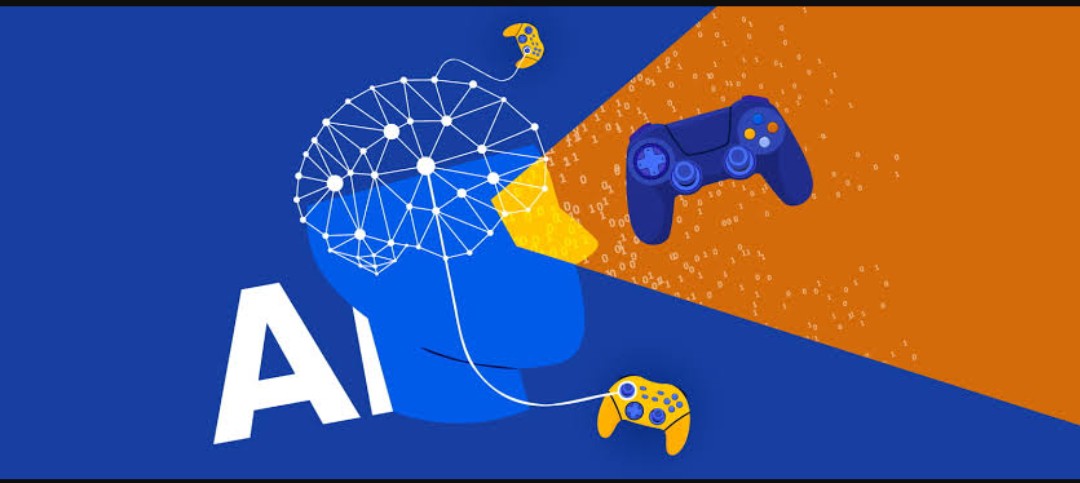Explore how AI is transforming game development by creating immersive and interactive experiences. Learn about AI-driven procedural content generation, enhanced NPC behavior, improved game design, and future possibilities in the gaming industry.
The integration of artificial intelligence (AI) into game development has transformed way interactive experiences are designed and executed. AI-assisted game development offers potential to create more immersive dynamic and engaging games. It enhances various aspects of development process. This article explores role of AI in game development. It focuses on how AI contributes to creating interactive experiences. Also, it examines future possibilities it presents.
Understanding AI in Game Development
Artificial intelligence in game development refers to application of algorithms and models that enable games to exhibit intelligent behavior. Unlike traditional programming methods which rely on pre-defined rules and scripts, AI allows games to adapt. Games can learn and respond to player actions in real time. This capability enhances overall gaming experience. It makes interactions more realistic and challenging
AI-Driven Procedural Content Generation
One of most significant contributions of AI to game development is procedural content generation (PCG) PCG involves using algorithms to automatically create game content. This includes levels maps and environments rather than relying solely on manual design. AI-driven PCG can produce vast and diverse game worlds. This ensures that each playthrough offers unique experience.
1. Dynamic Environments: AI algorithms can generate environments that change dynamically based on player actions or in-game events For instance, a game might feature procedurally generated dungeon that adapts its layout enemies and rewards according to player's progress and decisions
2. Adaptive Storytelling: AI can also enhance storytelling by generating narratives that respond to player choices By analyzing player behavior and preferences AI can craft personalized storylines and dialogues making game world more engaging and immersive
Enhancing Non-Player Characters (NPCs)
Non-player characters (NPCs) are central to creating believable and interactive game world. AI enables NPCs to exhibit complex behaviors and interactions that mimic human-like responses. This capability enhances player engagement. It increases immersion by making NPCs feel more realistic and responsive.
1. Intelligent Behavior: AI algorithms can be used to program NPCs with advanced decision-making capabilities. For example NPCs can employ strategies and tactics in combat. They adapt behavior based on player actions. NPCs can also develop unique personalities and responses.
2. Natural Language Processing: AI-powered natural language processing (NLP) allows NPCs to engage in more meaningful conversations with players. By understanding and generating human language, NPCs can respond to player queries. They provide hints or offer dynamic dialogue options contributing to richer storytelling experience.
Improving Game Design and Balancing
AI assists in game design and balancing by providing tools for analyzing and refining gameplay mechanics. Game designers can leverage AI to evaluate how different elements of game interact and affect player experience. This leads to more balanced and enjoyable gameplay.
1. Playtesting and Feedback: AI can simulate extensive playtesting. It runs numerous virtual playthroughs. This identifies potential issues and provides feedback on gameplay balance. This process helps designers fine-tune game mechanics difficulty levels and progression systems based on data-driven insights.
2. Dynamic Difficulty Adjustment: AI algorithms can adjust difficulty of game in real time based on player's skill level and performance. This ensures that game remains challenging and engaging for players of varying abilities. It prevents frustration and enhances overall satisfaction.
Facilitating Game Development Workflows
AI also streamlines game development workflows by automating repetitive tasks and providing advanced tools for developers. This allows teams to focus on more creative aspects of game design. They can leverage AI to handle routine or complex tasks.
1. Asset Creation: AI tools can assist in creating game assets. Examples include textures models and animations. They generate variations or automate processes like rigging and texturing. This speeds up asset production and allows developers to explore new design possibilities.
2. Bug Detection and Testing: AI-driven tools can automatically detect bugs and issues in game code. They analyze patterns and identify anomalies. Automated testing helps ensure games are free of errors. They also perform optimally across different platforms and devices.
Future Possibilities and Challenges
As AI technology continues to advance possibilities for AI-assisted game development are expanding. Future developments may include more sophisticated AI algorithms and improved procedural content generation. There may also be greater integration of AI with virtual and augmented reality.
1. Personalized Experiences: AI may enable even more personalized gaming experiences. It could analyze individual player preferences and tailor content to match their interests. This could result in highly customized game worlds and narratives that evolve based on player interactions.
2. Ethical Considerations: Integration of AI in game development also raises ethical considerations. There is potential for AI to create manipulative or addictive game mechanics. Developers must consider these issues. They need to implement safeguards to ensure that AI enhances gaming experience responsibly and ethically.
Conclusion
AI-assisted game development is reshaping gaming industry by enabling creation of more immersive interactive and personalized experiences. From procedural content generation to intelligent NPC behavior, AI offers various benefits. These enhance both development process and player experience. Improved game design and streamlined workflows are crucial elements. As technology evolves role of AI in game development will likely expand. It will offer new opportunities and challenges for developers and gamers alike. Embracing AI's potential is important. Addressing ethical considerations will be key to shaping future of interactive entertainment
